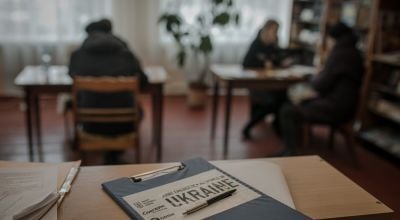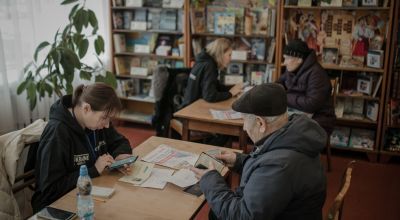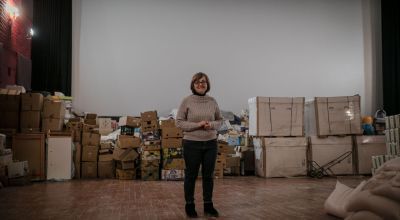
Read our 2024 annual report

Knowledge Hub
Ukraine, one year on
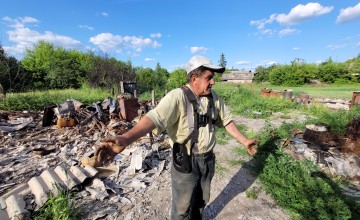
Few people could ever have imagined that it would be like this, as days turned to weeks, and weeks to months. One year on, and there is still no end in sight to the fighting or suffering in Ukraine. 365 days of relentless conflict have wrought devastating consequences on the lives of millions of people.
For those who have remained, they have endured month after month of limited or no access to food, water, healthcare, education, protection and other essential services. 12 months on, the number of people in severe humanitarian need in Ukraine is growing by the day.
17.6 million people require assistance
A recent Humanitarian Needs Overview report by UNOCHA estimates that as many as 17.6 million people in Ukraine currently require vital assistance. That includes 6.3 million people displaced within the country, 4.4 million people who have returned home to Ukraine after having fled temporarily to another country, and 6.9 million people who have remained in their homes throughout the conflict.
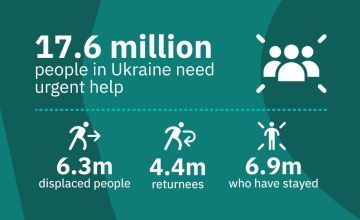
Mounting humanitarian needs
Large-scale destruction of infrastructure has disrupted essential services and left tens of thousands of people without a livelihood on which to survive. Many people are living in damaged houses or in buildings that are inadequate to withstand freezing temperatures of below -20°C. And a badly disrupted electricity network and rising energy costs have made a poor situation even worse.
It is against that backdrop that Concern and our partners have been responding to support vulnerable communities as they have faced mounting humanitarian needs over the past year.
Our response: The first steps
After the conflict began on 24 February 2022, Concern’s emergency response teams conducted initial assessments on the borders with Poland, Moldova, Hungary, Slovakia and Romania. We immediately started to support Ukrainian people crossing into Poland, by providing food to those on the move, assisting with the construction of toilets and heated tents and distributing vital hygiene supplies. We were able to do this with generous donations from the public to our Ukraine appeal.
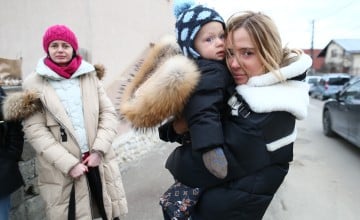
Assisting those most in need
After this initial response, it became clear very quickly that the greatest humanitarian needs were inside Ukraine. Working closely with our Alliance2015 partners ACTED and People in Need, Concern's focus then turned to supporting some of the most vulnerable internally displaced people living in areas where there was a lack of access to basic services and assistance.
Our activities centred on helping people with rent, food, hygiene and psychosocial support.
Concentrating on the eastern and central parts of the country, we provided 4,000 mostly displaced people with immediate cash assistance. In crises like this, cash-based programmes are important in helping people afford food and other basic essentials such as rent.
We also delivered 8,000 non-food item kits, including bed linen, blankets and kitchen utensils; 5,000 personal and household hygiene kits, made up of soap, toothpaste, washing powder and toilet rolls; and 200 baby hygiene kits, containing nappies, wipes and baby powder.
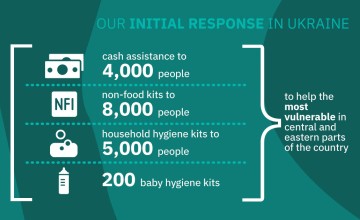
Coordinating a joint response
Months into the conflict, we joined with humanitarian partners Welthungerhilfe and Cesvi to coordinate the Joint Emergency Response in Ukraine.
This mainly involved getting supplies to communities in the east and south of Ukraine which were, and still are, accommodating huge numbers of displaced people.
In a recent needs assessment that we carried out in the eastern part of the country, 85% of households said that food was among their top needs, with 49% making it their first priority. Utilities costs were overall the second most commonly identified need (48%).
With food, rent and energy costs a burden for so many people caught up in the conflict, we continue to provide cash payments to families to enable them to buy what they need.
We are also supporting 22 collective centres with bedding and washing machines, supplying food to transit centres working with displaced people, and food and hygiene kits to communities hosting large numbers of people fleeing the conflict.
That response means that, together with our partners, we have provided more than 20,000 people with vital cash assistance and just over 14,000 vulnerable people with food kits in the past year.
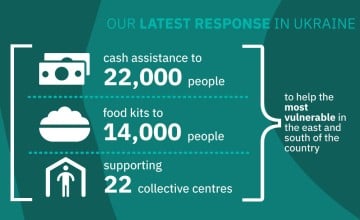
Physical harm and mental anxiety
While all the country has been impacted by the conflict, communities in the south and east are among those most severely affected.
Our needs assessment in the east of Ukraine confirms that - for the vast majority of households (95%) - the conflict has had a detrimental impact on their physical or mental wellbeing. Feelings of deep anguish (62%) and difficulty sleeping or nightmares (56%) are the most common symptoms.
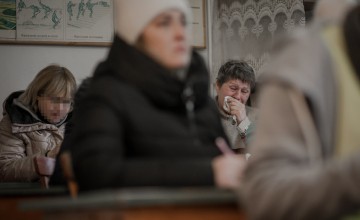
That is why we have also focused our response on providing key psychosocial support for children and adults who have been exposed to violence, fear and loss. We offer structured group activities, where participants can share their often traumatic experiences in a safe space. Psychologists in our mobile psychosocial teams provide solution-focused counselling and can refer people to specialist support.
With no resolution in sight, Concern and our partners will continue to respond to the humanitarian needs of people in need in Ukraine, as we have done over the past 12 months.



